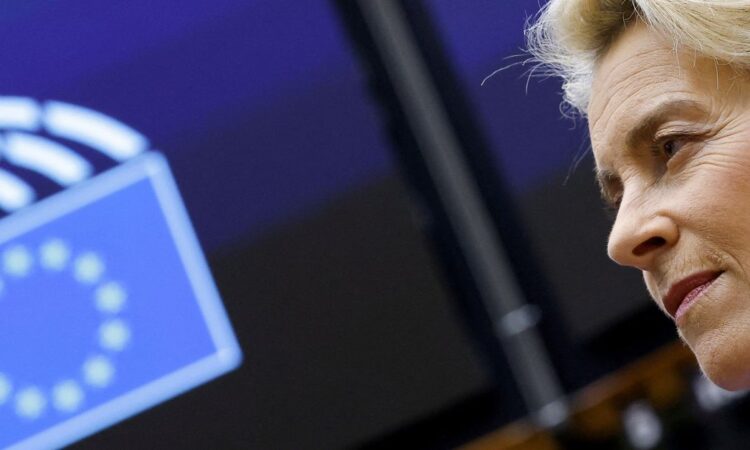
BRUSSELS, Nov 30 (Reuters) – The European Commission proposed a plan on Wednesday to compensate Ukraine for damage from Russia’s invasion with proceeds from investing Russian funds frozen under sanctions.
Officials in the EU, United States and other Western countries have debated whether Ukraine can benefit from frozen Russian assets, including around $300 billion of Russia’s central bank reserves and $20 billion held by blacklisted Russians.
Moscow says seizing its funds or those of its citizens amounts to theft.
“Russia must … pay financially for the devastation that it caused,” Ursula von der Leyen, president of the EU’s executive said in a statement.
“The damage suffered by Ukraine is estimated at 600 billion euros. Russia and its oligarchs have to compensate Ukraine for the damage and cover the costs for rebuilding the country.”
European Commission officials said that one short-term option for Western nations would be to create a fund to manage and invest liquid assets – mainly cash – of the central bank, and use the proceeds to support Ukraine.
The assets would be returned to their owners when sanctions were lifted, which could be part of a peace agreement that ensured Ukraine received compensation for damages.
“It’s not easy so it will require strong backing from the international community but we believe it is doable,” one official said.
A second official said the legal distinction between confiscating assets outright and confiscating proceeds from those assets was unclear because there was no precedent for such a scheme.
However, the proposal does echo a plan Washington announced in September to transfer $3.5 billion in Afghan central bank assets into a Swiss-based trust fund that would be shielded from the Taliban and used to help stabilize Afghanistan’s economy.
The first European Commission official said there had been initial contacts with the United States on its plan for the Russian central bank assets, but it was “very early days” and the idea would be presented to a G7 taskforce in December.
With regard to the frozen assets of private individuals and entities, seizing these is usually only legally possible where there is a criminal conviction.
The Commission has proposed that violations of sanctions could be classified as an offence that would allow confiscation.
Von der Leyen also said that the Commission was proposing the establishment of a specialised court, backed by the United Nations, “to investigate and prosecute Russia’s crime of aggression”.
Moscow denies its invasion, which it calls a “special military operation”, constitutes aggression, a war crime under international law.
Editing by Peter Graff and Raissa Kasolowsky
Our Standards: The Thomson Reuters Trust Principles.






